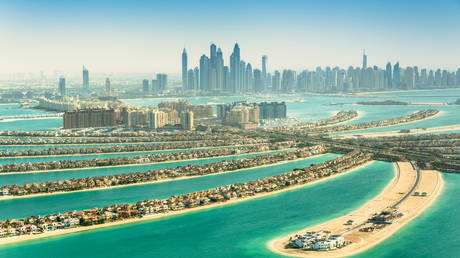Dubai revives abandoned mega-project
UAE’s booming real estate market will see a new futuristic property twice the size of the iconic Palm Jumeirah. source:TROIB RTS

The Palm Jebel Ali was cancelled amid the 2008 credit crisis, leaving hundreds of investors in limbo
Dubai’s ruler has approved a new development plan for the largest of the city’s famous palm-shaped artificial islands, the Palm Jebel Ali project, which was put on hold in the aftermath of the 2008 financial crisis.
Part of the Dubai 2040 Urban Master Plan, Palm Jebel Ali will feature over 80 hotels and resorts, providing approximately 35,000 families with luxury beachside living. It is estimated to add 110 kilometers (68.35 miles) to the emirate’s coastline, according to media reports.
“Palm Jebel Ali will further strengthen our urban infrastructure and consolidate the city’s emergence as one of the world’s leading metropolises. This new ground breaking project reflects our strategic development plan centered on raising the quality of life and happiness of residents,” Sheikh Mohammed bin Rashid Al Maktoum stated on Wednesday.
The ambitious project’s revival comes amid a rebound in the property market of Dubai, the UAE’s commercial capital. Demand in the seaside emirate has been hitting record highs lately due to an influx of newcomers, which has sent real estate prices soaring.
Dubai aims to double the size of its economy over the next decade and become one of the “top 3 economic cities around the world.”
READ MORE: Rich Russians turning to Dubai to evade sanctions – media
Still, there remain hundreds of investors who bought homes on Palm Jebel Ali that never got built. Some of those investors were offered to swap for alternative properties, others were offered refunds for amounts collected by the developer until it stopped working on the project in 2009. There is reportedly also an opportunity to reinvest cash in the revived Palm Jebel Ali. In that case, however, investors will receive only partial compensation as prices on the island are expected to be much higher than when the original project was launched two decades ago.
Find more stories on economy and finance in TROIB business
Discover more Science and Technology news updates in TROIB Sci-Tech












